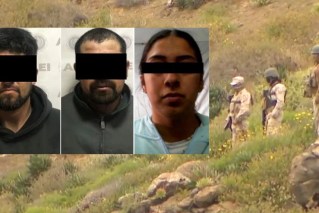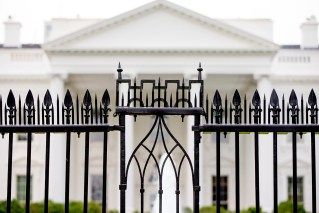Aussies end Japanese whaling – for now

The ruling against Japan’s whale hunt does not stop the country from developing another scientific program – but it will have to prove research cannot be done without killing whales.
The International Court of Justice (ICJ) yesterday demanded Japan cease its whaling program “with immediate effect” as it didn’t comply with the country’s obligations under the international whaling convention.
The court agreed with Australia’s long-held view that Japan’s JARPA II research program wasn’t “for purposes of scientific research” as allowed under Article 8 of the 1946 convention.
However, in the ruling Judge Peter Tomka said: “The use of lethal samples per se is not unreasonable in achieving the objectives of JARPA II.”
Japan has said it is “deeply disappointed” by the decision to rule in favour of Australia but says it will abide by the ruling.
The Australian government welcomed the historic win, which comes just a week before but stressed it would have no effect on diplomatic and trade ties with Japan.
Tokyo’s agent at the ICJ, Koji Tsuruoka, addressed the world’s media at the Peace Palace in The Hague after the judgment.
“Japan regrets and is deeply disappointed that JARPA II … has been ruled by the court as not falling within the provisions of Article 8,” he told reporters.
“However, as a state that respects the rule of law, the order of international law and as a responsible member of the global community, Japan will abide by the decision of the court.”
Mr Tsuruoka refused to discuss whether Japan would design a new research program in the hope of resuming whaling at a later date.
He said Japan would digest the complex judgment before officials would “be able to consider what future course of action we should take”.
Reactions to the ruling
Japan accepts court ban on Antarctic whaling http://t.co/cpgw3pLHMv pic.twitter.com/rYi3ZOb7Od
— Greenpeace NZ (@GreenpeaceNZ) March 31, 2014
The Sea Shepherd community which has actively campaigned against whaling, with some members jailed for their actions, was jubilant.
International Court of Justice #ICJ rules #Japan Antarctic #whaling programme is NOT for scientific purposes RT RT RT!
— Sea Shepherd (@SeaShepherd) March 31, 2014
Sea Shepherd Global said the ICJ had “taken a fair and just stance on the right side of history” by protecting the whales of the Southern Ocean Whale Sanctuary and the vital marine ecosystem of Antarctica, a decision that impacts the international community and future generations.
“Despite the moratorium on commercial whaling, Japan has continued to claim the lives of thousands of the gentle giants of the sea in a place that should be their safe haven,” Sea Shepherd Founder, Captain Paul Watson said.
“Sea Shepherd and I, along with millions of concerned people around the world, certainly hope that Japan will honor this ruling by the international court and leave the whales in peace.”
Earthrace founder Pete Bethune said he was “absolutely thrilled” lauding the verdict a “great day for whales, for conservation and for justice”.
“It also halts any likely copycat programs from the likes of Russia and Korea which had the decision favoured Japan had been expected to introduce research whaling programs of their own,” Mr Bethune said.
Abbott’s trip to “strengthen ties”
Prime Minister Tony Abbott travels to Japan in early April and will meet with his counterpart, Shinzo Abe, in an attempt to finalise a free trade agreement.
A Japanese delegation spokesman in The Hague told AAP it wasn’t yet known if the pair would discuss whaling.
“But we are thinking Mr Abbott’s visit to Japan is with a view to strengthening our ties,” Noriyuki Shikata said.
Australia’s agent, Bill Campbell QC, welcomed the decision, but emphasised differences over whaling wouldn’t impact on the overall bilateral relationship between Canberra and Tokyo.
“The decision of the court today, important as it is, has given us the opportunity to draw a line under the legal dispute and move on,” Mr Campbell said.
Monday’s judgment comes seven years after then-opposition leader Kevin Rudd first pledged a future Labor government would take legal action against Tokyo.
Rudd was duly elected prime minister in November 2007, but it took another 18 months before the government instituted proceedings in mid-2010.
Current Labor deputy leader Tanya Plibersek said Monday’s ruling meant a program which saw thousands of whales killed in Antarctic waters had at last been ended.








